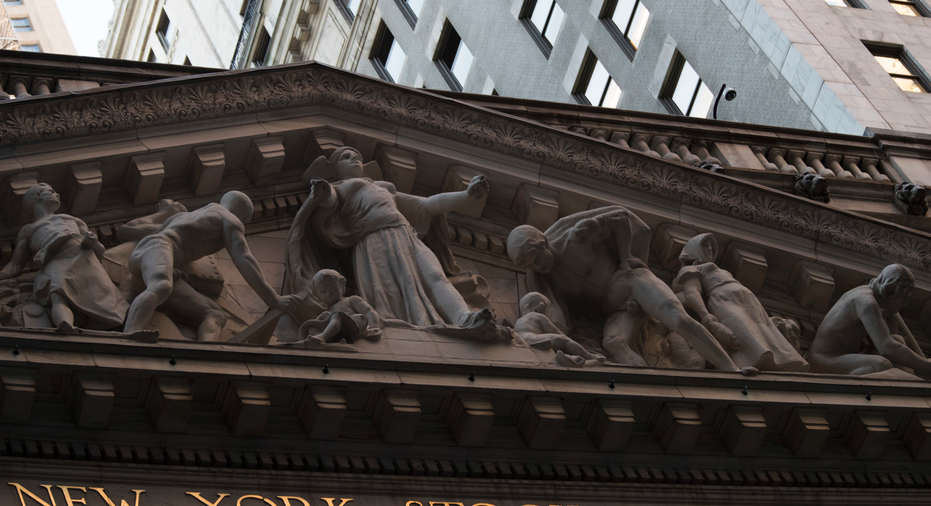Despite some wobbles, stocks end the week with more gains

NEW YORK – Stocks wrapped up another solid week Friday as industrial and energy companies ticked higher, but corporate earnings got off to a sluggish start as reports from several major U.S. banks failed to excite investors.
Indexes wobbled in morning trading, but rising oil prices helped energy companies, and defense contractors and machinery makers also rose. Consumer-focused companies like Amazon set record highs.
Wells Fargo skidded after reporting a drop in earnings as fallout continued from its phony accounts scandal. Citigroup also fell after its revenue growth was weak. AT&T skidded after the Justice Department asked a court to overturn the company's purchase of Time Warner.
Investors expect another round of great profit growth this quarter, but they're not sure about what will come next: the U.S. and China are in a trade war without any signs of resolution, midterm Congressional elections are getting closer, and interest rates keep rising. Paul Christopher, head of global market strategy for the Wells Fargo Investment Institute, said investors will focus on corporate forecasts covering the rest of the year.
"We think there will be a lot of attention paid to the outlook," he said. "We still think the economy is really what investors should be watching here, and we think it's going to be solid this year and again good next year."
The S&P 500 index edged up 3.02 points, or 0.1 percent, to 2,801.31. The Dow Jones Industrial Average added 94.52 points, or 0.4 percent, to 25,019.41. The Nasdaq composite set another record, just barely, as it rose 2.06 points to 7,825.98.
The Russell 2000 index of smaller-company stocks fell 3.20 points, or 0.2 percent, to 1,687.08. More stocks fell than rose on the New York Stock Exchange.
Major indexes rose for the second consecutive week following modest losses over the previous two weeks. Investors continued to waver between optimism about the growing U.S. economy, and the strong company earnings that come with it, and worries that the trade war and other commercial disputes could set back global economic growth.
Wells Fargo, the largest U.S. mortgage lender, posted a smaller profit than analysts expected. Its stock gave up 1.2 percent to $55.36. Citi fell 2.2 percent to $67 and JPMorgan Chase dipped 0.5 percent to $106.36.
While bank profits are surging this year, their stocks are not. Much of the profit growth has come from last year's corporate tax cuts rather than a big improvement in the banks' businesses. Investors have also worried about the shrinking gap between short-term interest rates and longer-term ones because banks make a lot of their money by borrowing money at short-term rates and lending it out over the long term.
While investors are taking money out of financials, they are more optimistic about technology companies and retailers, which are expected to post even stronger earnings growth later this summer. On Friday Amazon rose 0.9 percent to $1,813.03 and Microsoft added 1.2 percent to $105.43.
AT&T dropped 1.7 percent to $31.67 after the Justice Department moved to challenge its recent purchase of Time Warner. The $85 billion deal closed last month after a federal judge ruled that it did not violate antitrust law, but the government is asking a higher court to reconsider that ruling.
Benchmark U.S. crude rose 1 percent to $71.01 a barrel in New York while Brent crude, used to price international oils, rose 1.4 percent to $75.33 per barrel in London.
Devon Energy advanced 1.8 percent to $44.72 and Exxon Mobile rose 0.7 percent to $83.31.
Johnson & Johnston lost 1.4 percent to $125.93 after a St. Louis jury awarded almost $4.7 billion in damages to 22 women and their families after they claimed asbestos in Johnson & Johnson talcum powder contributed to their ovarian cancer. The company said it will appeal, as it has in previous cases that found for women who sued the company. This is the first case that focused on asbestos in the talcum powder.
Bond prices moved higher. The yield on the 10-year Treasury note fell to 2.83 percent from 2.85 percent.
Gold lost 0.4 percent to $1,241.20 an ounce. Silver fell 1 percent to $15.82 an ounce. Copper lost 0.1 percent to $2.78 a pound.
While the stronger dollar has sent gold and silver prices lower, the losses for copper have been especially steep. Copper futures have fallen for five straight weeks, down 16 percent over that time, a sign that investors are worried the trade war will impair construction, manufacturing and power generation.
Wholesale gasoline rose 1.7 percent to $2.11 a gallon. Heating oil added 0.5 percent to $2.13 a gallon. Natural gas sank 1.6 percent to $2.75 per 1,000 cubic feet.
The dollar rose to 112.30 yen from 112.46 yen. The euro edged up to $1.1677 from $1.1670.
France's CAC 40 advanced 0.4 percent and Germany's DAX rose 0.4 percent. Britain's FTSE 100 gained 0.1 percent.
Asian markets finished mostly higher led by Japan, where the Nikkei 225 jumped 1.9 percent as the yen weakened against the dollar, which helps exporters. South Korea's Kospi advanced 1.1 percent to and Hong Kong's Hang Seng index added 0.2 percent.
___
AP Markets Writer Marley Jay can be reached at http://twitter.com/MarleyJayAP His work can be found at https://apnews.com/search/marley%20jay



















